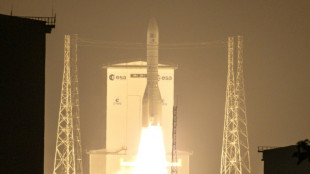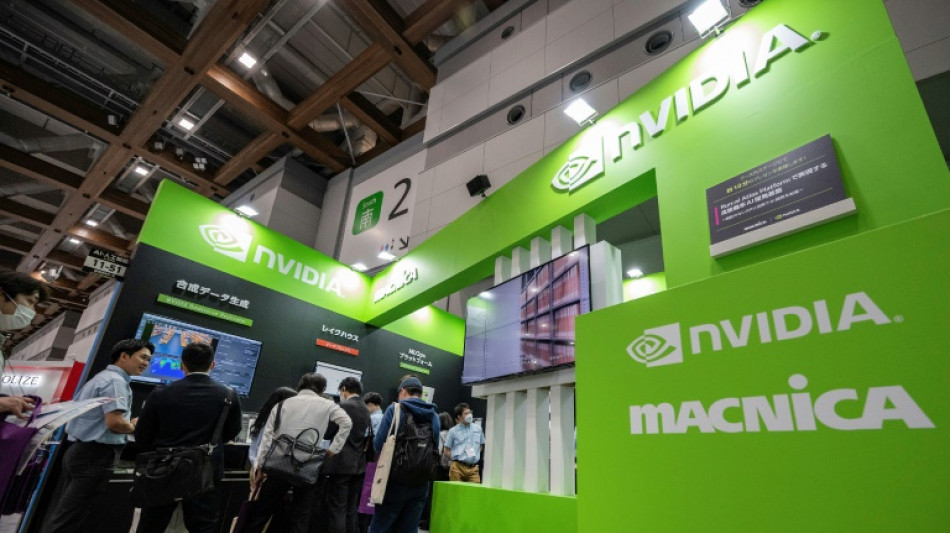
-
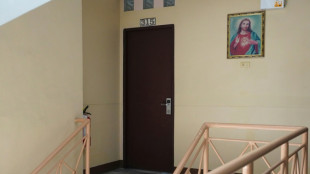 Alleged Bondi shooters holed up in hotel for most of Philippines visit
Alleged Bondi shooters holed up in hotel for most of Philippines visit
-
Japan govt sued over 'unconstitutional' climate inaction
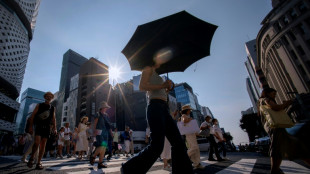
-
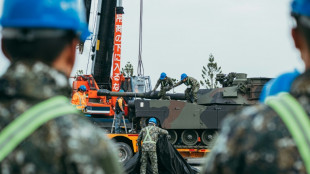 US approves $11 billion in arms sales to Taiwan: Taipei
US approves $11 billion in arms sales to Taiwan: Taipei
-
England battle to save Ashes as Australia rip through top-order

-
 Guarded and formal: Pope Leo XIV sets different tone
Guarded and formal: Pope Leo XIV sets different tone
-
What to know about the EU-Mercosur deal
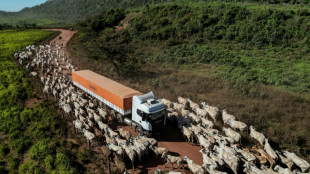
-
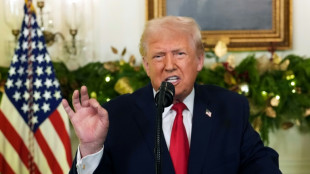 Trump vows economic boom, blames Biden in address to nation
Trump vows economic boom, blames Biden in address to nation
-
Conway 120 as New Zealand in command at 216-0 against West Indies

-
 Taiwan eyes fresh diplomatic ties with Honduras
Taiwan eyes fresh diplomatic ties with Honduras
-
ECB set to hold rates but debate swirls over future
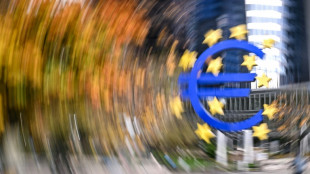
-
 Asian markets track Wall St lower as AI fears mount
Asian markets track Wall St lower as AI fears mount
-
EU holds crunch summit on Russian asset plan for Ukraine
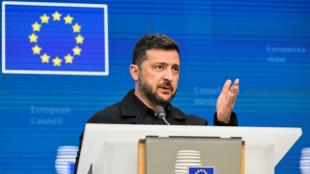
-
 Australia PM vows to stamp out hatred as nation mourns youngest Bondi Beach victim
Australia PM vows to stamp out hatred as nation mourns youngest Bondi Beach victim
-
Australian PM vows hate speech crackdown after Bondi Beach attack

-
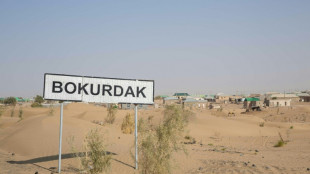 Turkmenistan's battle against desert sand
Turkmenistan's battle against desert sand
-
Ukraine's Zelensky in Poland for first meeting with nationalist president
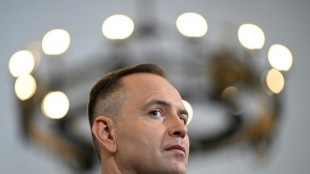
-
 England in disarray at 59-3 in crunch Test as Lyon, Cummins pounce
England in disarray at 59-3 in crunch Test as Lyon, Cummins pounce
-
Japan faces lawsuit over 'unconstitutional' climate inaction
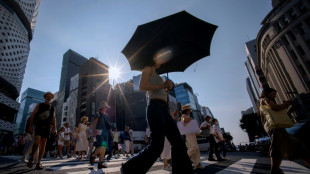
-
 Migrants forced to leave Canada after policy change feel 'betrayed'
Migrants forced to leave Canada after policy change feel 'betrayed'
-
What's next for Venezuela under the US oil blockade?
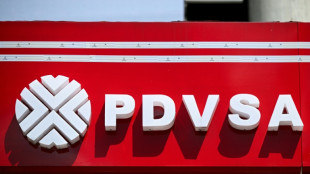
-
 Salvadorans freed with conditional sentence for Bukele protest
Salvadorans freed with conditional sentence for Bukele protest
-
Brazil Congress passes bill to cut Bolsonaro prison term
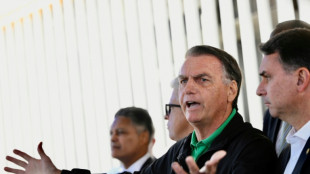
-
 Cricket Australia boss slams technology 'howler' in Ashes Test
Cricket Australia boss slams technology 'howler' in Ashes Test
-
New Zealand 83-0 at lunch on day one of third West Indies Test
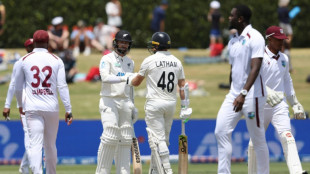
-
 Ecuadorean footballer Mario Pineida shot and killed
Ecuadorean footballer Mario Pineida shot and killed
-
US government admits liability in deadly DC air collision

-
 1933 Industries Announces Maturity of Unsecured Convertible Debentures and Encourages Conversion to Support Continued Growth
1933 Industries Announces Maturity of Unsecured Convertible Debentures and Encourages Conversion to Support Continued Growth
-
Ex-podcaster Dan Bongino stepping down as deputy FBI director
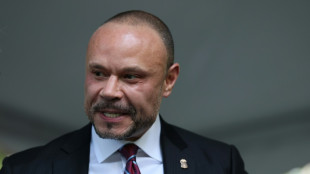
-
 Real Madrid scrape past third-tier Talavera in Spanish Cup
Real Madrid scrape past third-tier Talavera in Spanish Cup
-
Hunt for US college mass shooter drags into fifth day

-
 Cherki inspires Man City, Newcastle strike late to reach League Cup semis
Cherki inspires Man City, Newcastle strike late to reach League Cup semis
-
Barcelona, Lyon and Chelsea reach Women's Champions League quarters

-
 Venezuela reacts defiantly to US oil blockade, claims exports unaffected
Venezuela reacts defiantly to US oil blockade, claims exports unaffected
-
Nasdaq tumbles on renewed angst over AI building boom
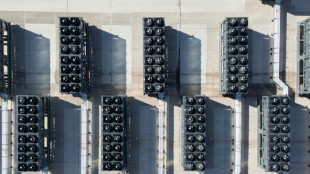
-
 S.Africa expels Kenyans working on US Afrikaner 'refugee' applications
S.Africa expels Kenyans working on US Afrikaner 'refugee' applications
-
US Congress ends Syria sanctions

-
 Cherki inspires Man City cruise into League Cup semis
Cherki inspires Man City cruise into League Cup semis
-
Billionaire Trump nominee confirmed to lead NASA amid Moon race
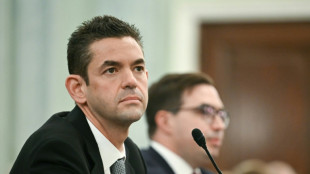
-
 Mahomes undergoes surgery, could return for 2026 opener: Chiefs
Mahomes undergoes surgery, could return for 2026 opener: Chiefs
-
Melania Trump steps into spotlight in Amazon film trailer
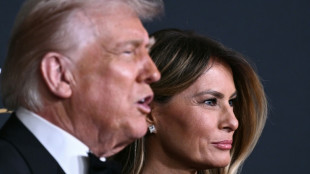
-
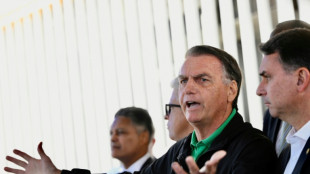 Brazil Senate advances bill that could cut Bolsonaro jail term
Brazil Senate advances bill that could cut Bolsonaro jail term
-
Safonov hero as PSG beat Flamengo in Intercontinental Cup

-
 Oscars to stream exclusively on YouTube from 2029
Oscars to stream exclusively on YouTube from 2029
-
Oscars to stream exclusively on YouTube from 2029: Academy

-
 CNN's future unclear as Trump applies pressure
CNN's future unclear as Trump applies pressure
-
Brazil threatens to walk if EU delays Mercosur deal

-
 Zelensky says Russia preparing for new 'year of war'
Zelensky says Russia preparing for new 'year of war'
-
Rob Reiner's son appears in court over parents' murder

-
 US Congress passes defense bill defying Trump anti-Europe rhetoric
US Congress passes defense bill defying Trump anti-Europe rhetoric
-
Three Russia-themed anti-war films shortlisted for Oscars
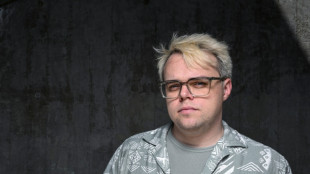
| SCS | 0.12% | 16.14 | $ | |
| RBGPF | -2.23% | 80.22 | $ | |
| RYCEF | 1.48% | 14.86 | $ | |
| RELX | -0.64% | 40.56 | $ | |
| RIO | 1.55% | 77.19 | $ | |
| GSK | -0.14% | 48.71 | $ | |
| NGG | 1.8% | 77.16 | $ | |
| BTI | -0.21% | 57.17 | $ | |
| BCE | -0.78% | 23.15 | $ | |
| CMSC | -0.34% | 23.26 | $ | |
| BP | 2.06% | 34.47 | $ | |
| CMSD | -0.43% | 23.28 | $ | |
| JRI | -0.6% | 13.43 | $ | |
| VOD | 0.86% | 12.81 | $ | |
| BCC | 0.59% | 76.29 | $ | |
| AZN | -1.66% | 89.86 | $ |

Japan ramps up tech ambitions with $65 bn for AI, chips
Japan is readying a $65-billion push in microchips and artificial intelligence aimed at reclaiming its status as a global tech leader and meeting the urgent challenges of its ageing, shrinking population.
The 10-trillion-yen package, which lawmakers could approve this week, is also seen as preparation for an uncertain world as fears grow of a potential Chinese invasion of chip powerhouse Taiwan.
But analysts warn that question marks remain over worker shortages and whether Japan can generate enough electricity for energy-hungry AI data centres.
After dominating in tech hardware during the 1980s, "Japan had a quite a long period of almost just sitting back and observing a lot of this innovation, particularly when it comes to artificial intelligence", said Kelly Forbes, president of the AI Asia Pacific Institute.
"What we have seen in the last maybe two to three years is Japan really waking up to the potential" of such developments, she told AFP.
Japanese tech investor SoftBank and US computing giant Nvidia last week unveiled ambitious proposals to build an "AI grid" across the nation.
That followed a flurry of US investments earlier this year, including from Microsoft, a partner of ChatGPT-maker OpenAI.
AI-powered automation can help Japan, which has the world's second oldest population after Monaco, said Seth Hays, author of the Asia AI Policy Monitor newsletter.
"Demographically speaking, Japan's just going to be crunched on that," he said.
So "they need to utilise AI in order to get those productivity gains that keep the country going".
- Energy problem -
The new government money will bolster Japan's home-grown Rapidus project to produce next-generation semiconductors.
Tokyo has already promised up to four trillion yen in subsidies to help triple sales of domestically produced microchips by 2030.
"Semiconductors are really at the core of AI innovation," said Forbes.
Most of the world's chips are made in Taiwan -- but fears are growing of a blockade or invasion by Beijing, which claims the self-ruled island as part of its territory.
Facing pressure from customers and governments to diversify its production, Taiwanese chip giant TSMC in February opened a $8.6-billion chip factory in southern Japan, and is planning a second facility in the country for more advanced chips.
US President Joe Biden's administration is also pouring money into building chip factories on American soil, including $6.1 billion to Micron and $6.6 billion for TSMC.
Japan's investments are an attempt "to remain competitive in that space, but also... to stay prepared around this geopolitical tension that we know is growing", Forbes said.
But the country needs to find a way to power these energy-intensive projects, from chip manufacturing to running data centres to train AI models.
Japan is heavily dependent on fossil fuel imports, with the government working to bring back online nuclear plants that were halted after the 2011 Fukushima disaster.
"In Taiwan, TSMC takes up eight percent of our electricity," said Hays, who is based in Taipei. "Where's Japan going to get the energy?"
- 'Soft' regulation -
Among Nvidia's collaborations with SoftBank is a new supercomputer using the US company's cutting-edge Blackwell AI chips.
At a speech in Tokyo, Nvidia boss Jensen Huang vowed to "transform the telecommunications network into an AI network" in Japan.
"This is completely revolutionary," he said, giving the example of a radio tower that acts as an "air traffic control, essentially, for self-driving cars".
Despite the hype, Japan has some way to go -- in this year's global classification of digital competitiveness by Swiss management school IMD, it was ranked just 31st.
To boost the sector, "Japan's copyright law is actually one of the most AI-friendly copyright laws in the world", Hays said.
"It essentially allows AI companies to train on copyrighted data, even for profit," he said, adding that while Singapore has similar rules, the approach is unusual.
At the same time, Japan has been "taking a lead" on international discussions on AI, including with an initiative launched at last year's G7 summit in Hiroshima.
Prime Minister Shigeru Ishiba has also pledged to "formulate a new support framework to attract more than 50 trillion yen in public and private investment over the next 10 years" for AI and chips.
Japan can benefit from AI advances in healthcare, Forbes said, calling the latest investments an attempt to "put Japan at the forefront of this technological revolution".
Y.Nakamura--AMWN
